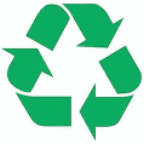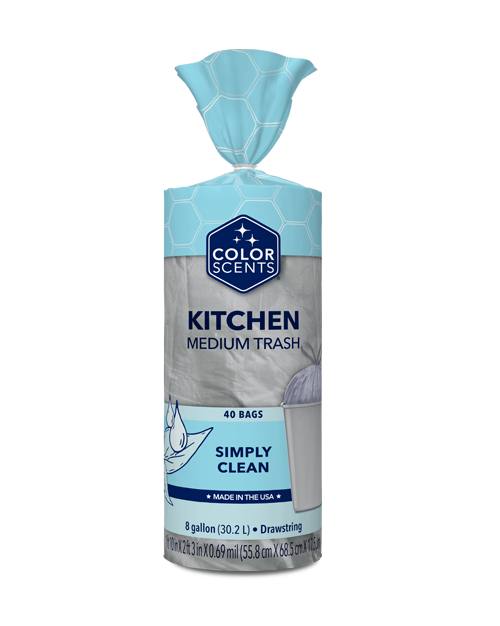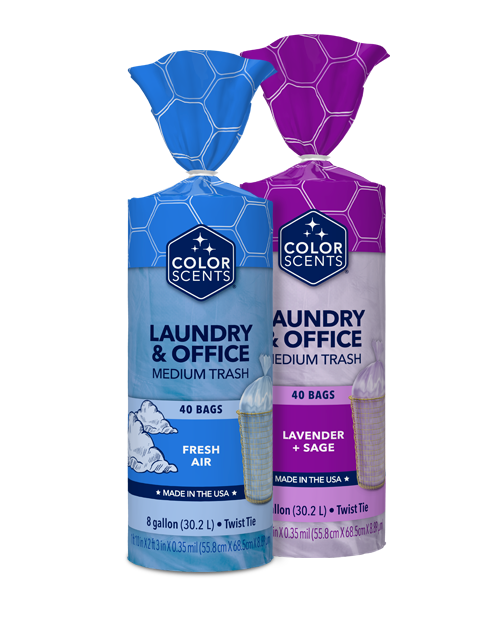Earth Day every day
SustainabilityApril 2022
Every April, people around the globe celebrate Earth Day. The first Earth Day was celebrated April 21, 1970 – over 50 years ago! 20 million Americans took to the streets to demonstrate against the impacts of industrial development. Over the years, this day has evolved into a month-long event, known as Earth month, with an emphasis on sustainability and how we can make our planet a better place for generations to come.
In 1990, 20 years after its inaugural event, Earth Day went global. Alongside 200 million people in 141 countries, I participated in my first Earth Day rally. Hitting the streets of Raleigh, North Carolina, I marched chanting “Earth Day. Every Day.” Sure, I knew what I was doing and what I was saying, but had I only realized then the impact of my actions on the world today, I may have done more than just chanted those words.

Today, Earth Day is marked by more than 1 billion people and is much more than just a day or month-long event. What started out more than 50 year ago as key buzz words: Reduce, Reuse, Recycle…has evolved into more complicated terms: Post-consumer resin, Circular economy, Closed-loop recycling.
In 1987, the United Nation Brundtland Commission defined sustainability as, “meeting the needs of the present without compromising the ability of future generations to meet their own needs.” Sounds simple enough, right? Since 1987, sustainability terminology has evolved greatly and can often be confusing. We have complied a list of key terms to help.
Bio Based or Bio Sourced
When the product is partially or fully derived from renewable sources. Biobased plastics, a type of bioplastic, are typically made from algae, corn, or sugarcane
Biodegradable
When a compound can degrade biologically, (be broken down by the action of microorganisms – most often by bacteria) it is known as being biodegradable. This is directly due to the chemical structure of the polymer. Biodegradable plastic types offer new ways of recovery and recycling – if certified compostable (according to international standards), these plastics can be composted in industrial composting plants
Bio Plastics
Plastics that are either bio-based, biodegradable, or feature both properties
Carbon Footprint
The quantified amount of carbon dioxide (or CO2e) released into the atmosphere as a result of the activities of a particular individual, organization, or community
Chemical Recycling
The operations that aim to chemically degrade collected plastic waste into its monomers or other basic chemicals. The output can then be reused for polymerization into new plastics for the production of other chemicals or as an alternative fuel
Circular Economy
An industrial economy that promotes resource efficiency as an alternative to the traditional linear economy of “take, make, use, dispose” production. The circular economy aims to extract maximum value from each resource used, at each stage in its lifecycle, then to recover and reuse these materials at the end of the resources’ serviceable life.
Climate Change
Climate change is a large-scale, long-term shift in the planet’s weather patterns and/or natural temperatures. A recent increase in global average temperature leading to changing weather patterns has been attributed to humankind’s use of fossil fuels, releasing greenhouse gases into the atmosphere. Although the exact impact humans are having on the environment is disputed, it is widely agreed that anthropogenic (human-led) climate change has been occurring since the industrial revolution (early 19th Century)
Closed loop (systems)
A business model or process that completely reuses or recycles all materials. For example: A closed loop water system will continuously cycle the same water to cool materials, and a closed loop recycling system is a concept that has zero waste.
Curbside collection
The collection of recyclable household materials that are left at the curbside for collection by the local council or other collection services.
Compostable
A product that is compostable is one that can be placed into a composition of decaying biodegradable materials, and eventually turns into a nutrient-rich material. If something is industrially compostable, it means it will only compost under certain temperatures/conditions created in an industrial environment.
CO2e
stands for Carbon Dioxide equivalent, and is the standard unit for measuring carbon footprints. It standardizes emissions by expressing the impact of other greenhouse gases in terms of the amount of CO2 that would have equal impact.
Degradable
When a compound can break down into simpler compounds through decomposition either chemically or biologically, they are degradable.
Down-gauging
A concept in the industry where the film is designed to be as thin as possible while still fulfilling its requirements. This is a method used to reduce its raw material content and carbon footprint. It uses less material and requires less fuel to transport, thus releasing fewer greenhouse gas emissions.
Eco-friendly
Environmentally minded actions that cause minimal harm to the earth.
Ellen MacArthur Foundation
A charity founded by Ellen MacArthur which aims to aid the transition to a circular economy by working with business, government, and academia. It does so through education and training, insight and analysis, and systematic initiatives and communication.
End of Life
When a product completes its function, it has reached its end of life. An end-of-life option would be to send this product to landfill. However, to extend its lifecycle it could be reused or recycled.
Energy Recovery or Waste to Energy
the conversion of non-recyclable waste materials into useable heat, electricity, or fuel.
Fossil fuels
A hydrocarbon deposit derived from the remains of ancient plants and animals that can be used as fuel. The most common fossil fuels are petroleum, coal, and natural gas. Greenhouse gas emissions generated from the burning of fossil fuels are considered to be one of the principal causes of climate change.
Global Reporting Initiative (GRI) Index
provides a detailed look into Berry Global’s sustainability measurements including waste, water, greenhouse gas emissions, and energy.
Global Warming
The gradual increase of the planet’s temperature due to pollution or other effects
Greenhouse Gas Emissions (GHG)
A greenhouse gas (GHG) is one that absorbs and emits thermal radiation. The primary GHGs in the Earth’s atmosphere are water vapor (H2O), carbon dioxide (CO2), methane (CH4), nitrous oxide (N2O), and ozone (O3). Greenhouse gas emissions refer to the release of GHGs into the atmosphere from human activities, mainly from the burning of fossil fuels. Greenhouse gas emissions can change the atmospheric concentration of GHGs, affecting the planet’s climate. Greenhouse gas emissions are often referred to as carbon emissions.
Greenwashing
Misrepresenting something as being ‘green’ when it’s not environmentally sound
How2Recycle
Part of GreenBlue, an environmental nonprofit, in the United States, How2Recycle provides a clear labeling system for consumer packaging that details how a consumer should recycle a package. That includes a store drop-off designation for some flexible packaging. To use this label, packages must be submitted to How2Recycle for approval.
Incineration
The method of destroying something, most notably waste material, by burning. This is an end-of-life option that is considered more ideal than sending the product to a landfill. However, it’s lower in the waste hierarchy than other “greener” alternatives. The gaseous-emissions associated with incineration can minimize its credentials as a “green” end-of-life option.
Life Cycle Analysis (LCA)
A technique used to evaluate the environmental impact of a product through all stages of its lifecycle from design to final disposal. This allows a company to assess the environmental impact of all the materials used at every stage in its life (For example, the carbon emissions during the extraction stage of the raw materials).
Microplastics
Small pieces of plastic debris (less than 5mm long) are found in the environment. Microplastics are derived from a variety of sources, including cosmetics, clothing, and industrial processes. They are the direct result of plastic product use or the breakdown of larger plastic debris.
New Plastics Economy
Initiated by the Ellen MacArthur Foundation, the New Plastics Economy Global Commitment, holds companies and organizations responsible to accelerate the transition towards a circular economy. As of 2019, 450 companies have signed up, including Berry Global.
Net-Zero
Achieving a balance between emission product and emissions removed from the atmosphere; also known as carbon neutrality
Post-Consumer Resin (PCR)
Once a material or product has served its intended use and been recovered from waste, it is considered post-consumer. The intended use may have been as transportation packaging or household usage. The material can then be recycled having finished its life as a consumer item. The new product could then be marketed as having “x-amount” post-consumer recycled (PCR) content in it
Post-Industrial Resin (PIR)
This refers to material that has been processed initially but has failed to meet specifications or otherwise not sold as prime material, and is therefore sold to another party for reprocessing. This material is not post-consumer, as it was never sold to serve its intended use. The new product could then be marketed as having “x-amount” post-industrial recycled content in it. This does not include internal scrap, where scrap is reprocessed on-site
Recycled Content
The amount of recycled content can be defined as the proportion, by mass, of recycled material in a product or packaging. This can be recycled content from both post-consumer recycled material and industrial recycled material
Recyclable
If material is recyclable, it means that it is theoretically able to be recycled. This does not necessarily mean the infrastructure is in place everywhere for current recycling of a product made out of that material. The recyclability of a product is based on the material(s) it is made from, and whether those materials are recyclable
Recycling
The process of converting waste materials into new materials and objects.
Reduce
To decrease in amount or size. In the plastic industry, “reducing” usually refers to the reduction of a product’s weight (Downgauging), the reduction of greenhouse gas emissions, or the reduction of the amount of waste
Reuse
To use an object more than once (For example, refilling a soda bottle with water after drinking the soda is reuse of the bottle)
Reduce, Reuse, Recycle

Also known as the three R’s, are essential components of environmentally friendly behavior. Reduce the amount of waste we generate. Reuse items instead of throwing them out. Recycle old products by using them in new ways.
Sustainability
There is no universally agreed definition of sustainability, particularly environmental sustainability. Sustainability stems from the concept of sustainable development; ‘development that meets the needs of the present without compromising the ability of future generations to meet their own needs’. Environmental sustainability has now come to mean that for a process to be sustainable, it must be able to perform its function while indefinitely protecting and/or enhancing the earth’s natural capital. Overall, sustainability implies that a healthy environment, economic prosperity, and social justice are pursued simultaneously for a quality-of-life for indefinite generations.
Virgin Plastic/Resins
The resin produced directly from the petrochemical feedstock (natural gas or crude oil), which has never been used or processed before. This is typically more durable on a molecular level than recycled plastic/resins
Waste Hierarchy
A set of priorities for the efficient use of resources. This runs from the most preferable, to avoid and reduce waste, through reuse, recycle, repurpose, recover, and treatment, to the least preferable which is complete disposal through incineration then even less preferable, landfill.
Zero-Waste
Avoiding products that create waste to avoid contributing to landfills, incinerators, and waste discarded in nature. Minimal waste is a more realistic term, as it’s impossible to create zero waste.
Color Scents trash bags are a product of Berry Global, a manufacturer and marketer of plastic packaging products. Berry is a leader in plastic recycling, sustainability, and community engagement partnerships. Berry cares about Mother Earth and is continually growing and learning in our sustainability efforts. Our list of terms is not inclusive and will grow over time. If there is a sustainability term missing from our list, please let us know so we can grow and learn together.








